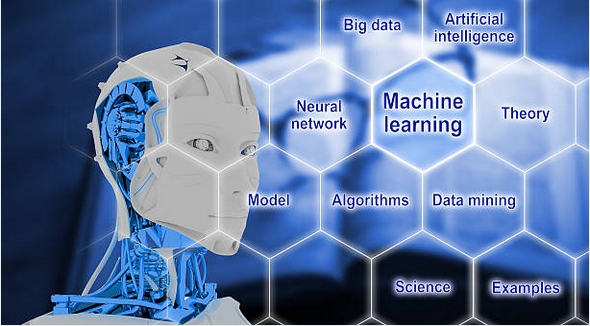

Machine Learning Foundations
Description
We rely on a combination of online courses and mentored guidance to carry out live projects in a real-world situation.
In this course, you develop the necessary mathematical foundations required for an intuitive understanding of machine learning. You get to play with datasets in assignments and projects to get an overview of a few machine learning ideas and techniques. Furthermore, we present some ideas related to objectively measuring the performance of machine learning models.
Prerequisites
Programming experience and a dedication to learn. The courses assignments and notes will use python programming language and expects a basic knowledge of python.
Schedule
Duration: 6 Weeks
|
Week |
Date |
Topic |
|
1 |
22-April |
Data Science and Analysis |
|
1 |
23-April |
Linear Algebra |
|
2 |
29-April |
Probability and Statistics |
|
2 |
30-April |
Break |
|
3 |
06-May |
Multivariate Calculus |
|
3 |
07-May |
Optimization |
|
4 |
13-May |
Linear Models and SVMs |
|
4 |
14-May |
Break |
|
5 |
20-May |
Decision Trees and Ensemble Models |
|
5 |
21-May |
Pattern recognition and grouping Models |
|
6 |
27-May |
Model Evaluation and Validation |
Syllabus
- Data Science and Analysis:-Learn about representing data through various data structures, extracting meaningful information from data and developing a visual understanding of problems using data.
- Linear Algebra:- Develop a geometric intuition of various ideas in linear algebra and transition to its computational applications.
- Probability and Statistics:- Understand “chance” and it’s association with statistics. Transition to computational science to solve problems.
- Multivariate Calculus:-Develop a meaningful understanding of rate of change and understand the importance of this in machine learning by looking at some common applications
- Random Optimization:- Linear optimization discussing hill climbing, genetic algorithms and simulated annealing from a computational viewpoint.
- Linear Models:- Discover foundational principles of machine learning using linear models and Support Vector machines for classification and regression tasks.
- Decision Trees and Ensemble Learning:- Investigate decision making using trees and forest models in machine learning
- Pattern Recognition and Grouping Models:- Develop models that group and recognize patterns using nearest Neighbours and K-Means for classification and clustering tasks
- Model evaluation and Validation:- Focus on evaluating models using cross-validation metrics and learning objectives.
Cost: INR 70,000
Machine Learning and AI
Description:
In this course you will learn to implement mathematical ideas in machine learning. You will investigate the process of learning and understand the application of various learning algorithms.
Prerequisites
The courses assignments and notes will use python programming language and expects a basic knowledge of python. We assume the student has completed the Machine Learning Foundations or has an equivalent fluency in mathematics and fundamentals.
Note: If you haven’t done the Machine learning fundamentals you will have to pass a test that verifies your understanding of fundamentals.
Schedule
Duration: 6 Weeks
|
Week |
Date |
Topic |
|
1 |
03-June |
Linear Models |
|
1 |
04-June |
Dimensionality Reduction |
|
2 |
10-June |
SVM |
|
2 |
11-June |
Break |
|
3 |
17-June |
Nearest Neighbours, K-means, and Gaussian Mixture Models |
|
3 |
18-June |
Naive Bayes and Decision Trees |
|
4 |
02-July |
Search |
|
4 |
08-July |
Break |
|
5 |
15-July |
Logic and Planning |
|
5 |
16-July |
Reinforcement Learning and Hidden Markov Models |
|
6 |
22-July |
Q-Learning and Policy gradient |
Syllabus
- Linear Models :- Understand linear approximation and modelling of problems and develop linear models
- Dimensionality Reduction:- Use ideas from linear algebra to transform dimensions and warp space providing additional flexibility and functionality to linear models.
- SVM:- Develop and implement kernel based methods to develop nonlinear models to solve few complex tasks.
- Nearest Neighbours, K-means, and Gaussian Mixture Models:- Review pattern recognition ideas with distance and cluster based models to understand similarity measures and grouping criteria.
- Naive Bayes and Decision Trees:- Dive into applications of bayes theorem and the use of decision criteria when learning from data.
- Search:- Look at search from the perspective of graphs, trees and heuristic based optimizations.
- Logic and Planning:- Discover ways to encode logic and develop agents that plan actions in an environment.
- Reinforcement Learning and Hidden Markov Models:- Engineering agents that learn from a sequence of actions using rewards and penalties.
- Q-Learning and Policy gradient:- Operate in a stateful world over value and policy approximations tasks
Cost: INR 70,000
Keystone Project
Description
Work on a machine learning project ideas and implementations through guided apprenticeship. Develop essential vocational skills required to work with teams on machine learning problems.
Prerequisites:
The project will use python programming language and expects fluency with scientific computation in python. We assume the student has completed the Machine Learning and AI course or has an equivalent fluency in implementing matlab code in python.
Schedule
Duration: 4 Weeks
|
Week |
Date |
Topic |
|
1 |
15-July |
Project Introduction and Problem Analysis |
|
1 |
16-July |
Feature Selection and Extraction |
|
2 |
22-July |
Model Building |
|
2 |
23-July |
Break |
|
3 |
29-July |
Model Evaluation |
|
3 |
30-July |
Feature Engineering |
|
4 |
05-August |
Model Improvements |
Cost: INR 50,000


